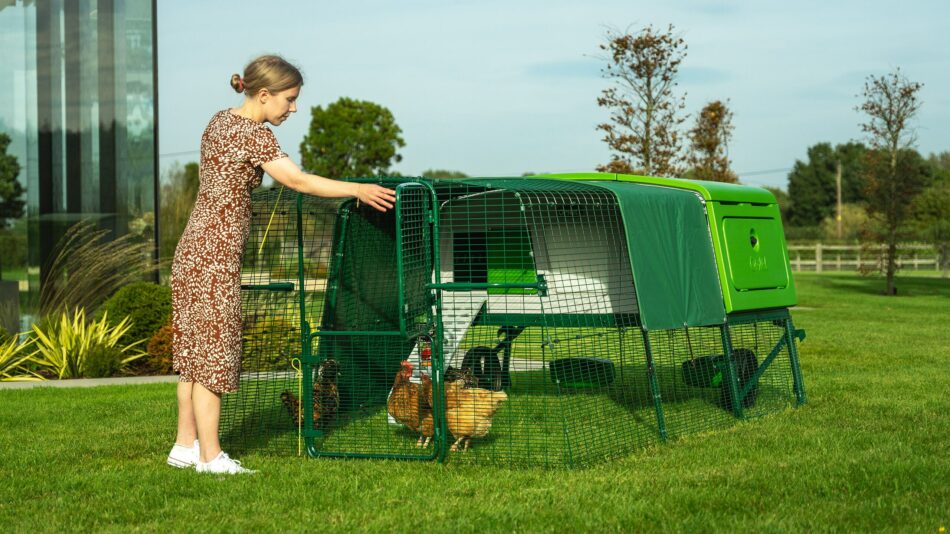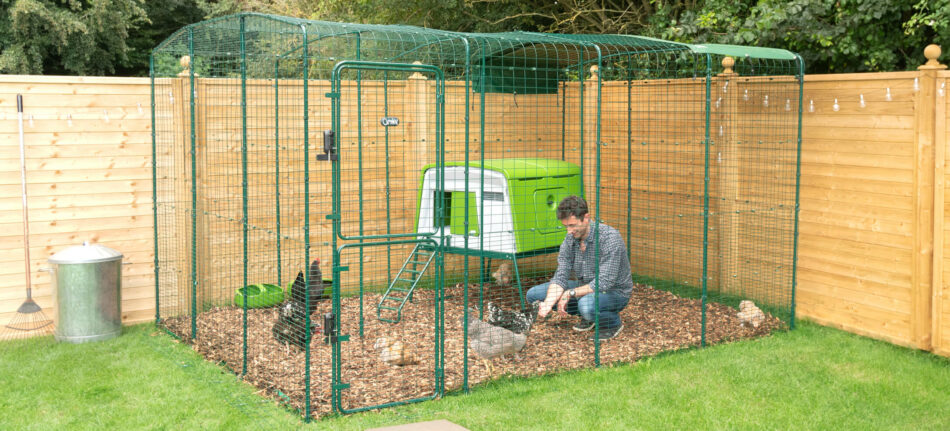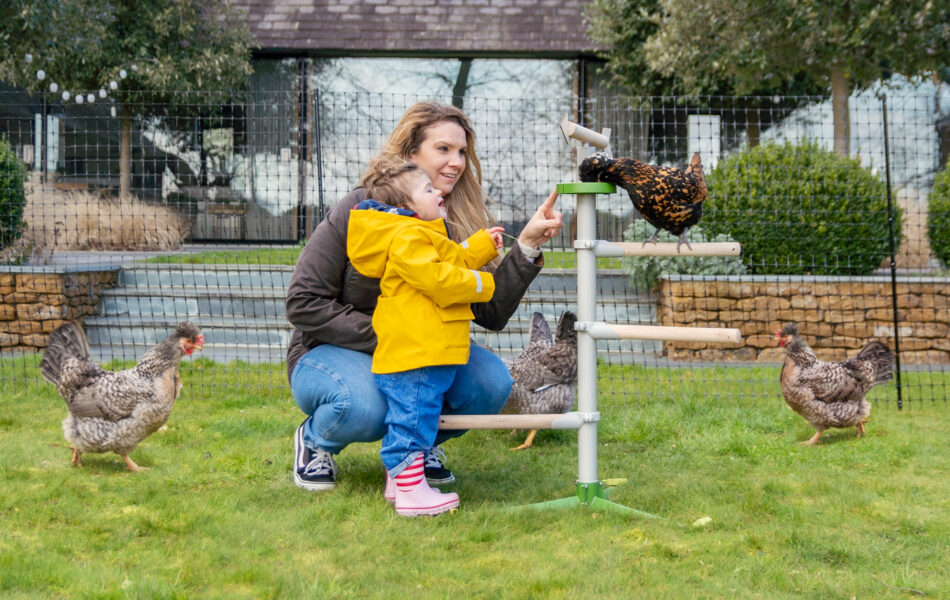Could chicken keeping suit my lifestyle?
When thinking about outdoor hobbies, have you ever found yourself wondering, could chicken keeping suit my lifestyle? If so, you’re not alone. Keeping a backyard flock of chickens has grown in popularity as a way to reduce stress, provide fresh eggs, and increase time outdoors. Here’s a look at how chicken keeping can fit into your lifestyle — no matter where you live.
Reasons to keep chickens
There are several benefits to keeping a backyard chicken flock. In addition to their charismatic charm, chickens offer their keepers many benefits like:
- Fresh eggs
- Pest control
- Fertilizer
- Yard upkeep
- Compost pile assistance
But above all, chickens can form bonds with their owners that will last a lifetime. Depending on the personalities of your hens, these relationships can look similar to those you share with your dogs or cats.
Knowing some of the benefits that hens can bring, it’s time to look at the finer details of keeping a flock. Housing and caring for chickens has several options, allowing you to choose a method that integrates them into your lifestyle with ease.
Types of setups
There are several different ways you can design your flock’s setup. Mobile coops, chicken runs, and chicken fencing are all components of chicken keeping that can all be customized to suit your lifestyle. Some chicken-keepers opt to let their flocks free-range, but there are some risks associated with this practice.
Mobile and stationary coops
All of Omlet’s chicken coops can be converted into mobile chicken coops with the addition of optional wheels or handles, or purchased as pre-constructed chicken tractors. Chicken tractors allow you to easily move your flock’s coop and run around your yard to reduce overgrazing and fertilize your lawn. It also makes it possible to move all of your chickens to shelter quickly in severe weather events.
Chicken runs and chicken fencing
Stationary chicken coops can be attached to large walk in chicken runs, or placed inside of chicken fencing. This is a popular option for many chicken-keepers, which gives your flock a dedicated space in your yard. Chicken runs and fencing keep your chickens where you want them, and away from your garden plants or any other areas that don’t require their attention. You can also choose the substrate of your chickens’ run once they’ve grazed over the available grass.
The risks of free-ranging
Free-ranging is an option for chicken-keepers that aren’t subject to laws that prohibit flocks from wandering. But there are still several important things to consider before allowing your chickens to free range:
- The need to close your hens in at night, or to install an smart automatic chicken coop door
- If chicken predators are prevalent in your area
- The nearest roadway
- Potential for plants poisonous to chickens
Flocks that free-range have access to additional nutrients, and can find their own chicken dust bathing areas — but these conveniences don’t come without risks. Your chickens are always safest inside of a sturdy chicken coop and run, with additional nutrition supplied to them through dried insects and herbs, seasonal hay, and fresh foods from your garden or supermarket will keep your chickens nourished without added risks.
If you do choose to let your flock free-range, be sure to take the proper precautions. Always close them safely in their coop at night, or schedule your automatic chicken coop door to close shortly after dark to keep them safe overnight. Avoid letting your chickens roam when you aren’t home so that you can monitor their whereabouts.
Daily routine
Daily routines are another area where each chicken-keeper can decide what works best for them. There are some routine tasks that need to be done, but with easy to clean chicken coops, they’ll only take minutes a day. Here’s an example of a daily routine with hens.
Morning:
- Let your hens out of their coop
- Refill chicken feeders and waterers
Afternoon:
- Check the nesting box for eggs
- In cold weather, make sure water isn’t frozen; in hot weather, make sure water is topped off
Evening:
- Close your hens inside the coop
- Remove any leftover feed to prevent rodents from visiting
- Check the nesting box one more time
Leaving chickens while you travel
Chickens are fairly self-sufficient, and as long as the weather is mild, overnight trips shouldn’t be a problem. Extra food and water can be left out for quick trips, and the Smart Autodoor will ensure that your hens are let out and tucked in on time. If you plan to be gone more than a day or two, you’ll want to get a chicken sitter to look in on your flock.
Flock sizes
Chickens are flock animals and need the companionship of chickens to thrive. It’s important to keep at least 2 hens together, but aiming to keep at least 3 or 4 together will allow them to establish a healthy flock pecking order.
Check the laws of the land
Before deciding on how many chickens you’ll keep, be sure to check with your city (if you live within city limits), county, or homeowners association (HOA) to see if your property is subject to any chicken keeping laws. Many laws that apply to keeping chickens will limit the number of hens you can keep at a time, where to place their coop, and whether or not roosters are allowed. Some properties are subject to minimum lot size requirements, and several cities require chicken-keepers to apply for a permit or license from the city before obtaining chickens.
Keep chicken math in mind
Once you have guidelines from the appropriate governing authority (if applicable to your property), you can decide how many chickens you’d like to have. Keep in mind that “chicken math” is real, and often strikes the unsuspecting chicken-keeper. Once you start a flock and discover their addicting attributes, it’s hard to stop at just a few hens. And so, a few hens often leads to many, resulting in more than you initially may have bargained for.
Leave room to grow
It’s always a good idea to invest in a setup that has room to grow your flock. Unless your property is strictly limited to 2-4 hens, it’s very likely that you’ll eventually end up with more chickens than you had in your starter flock.
The Eglu Pro houses up to 15 hens comfortably, and has increased safety features along with the easy-to-clean design of the entire Eglu chicken coop lineup. By choosing a large chicken coop, you’ll be able to add to your flock spontaneously.
Chicken lifestyle with Omlet
At Omlet, we make it possible to integrate chickens into your lifestyle. From urban backyards to rural barnyards, our chicken coops, chicken runs, and Smart Autodoor make it possible for anyone to keep hens healthy and happy. Embark on your new adventure keeping chickens, and discover the joy hens can bring to your life without sacrificing your lifestyle.
This entry was posted in Chickens



